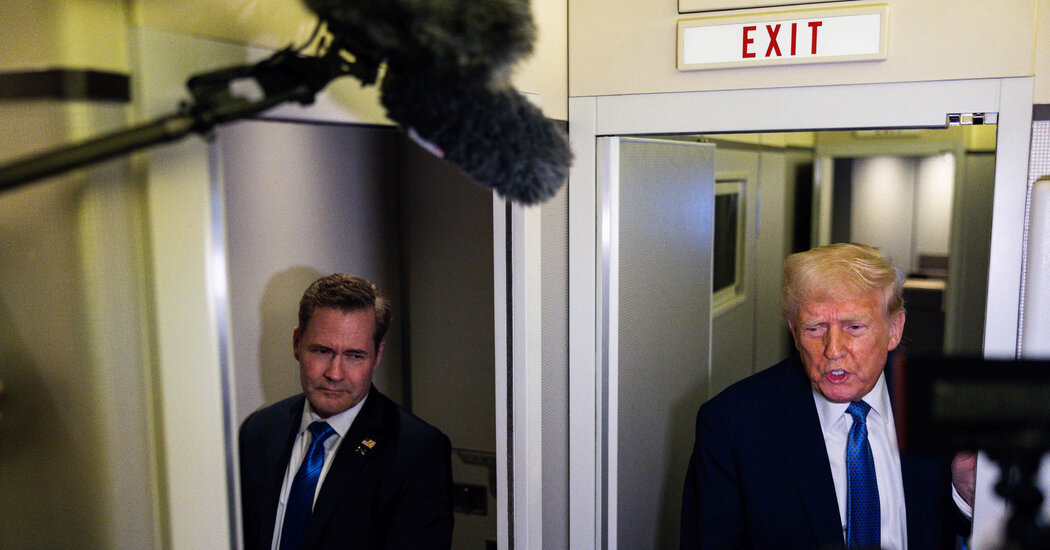Trump Addresses Controversy Over Group Chat Leak
In an exclusive interview with NBC News on Saturday, President Donald Trump expressed his determination not to dismiss any members involved in a group chat that accidentally revealed plans for airstrikes in Yemen to a journalist. During the conversation with NBC’s Kristen Welker, the President responded to mounting pressure to take action against National Security Adviser Michael Waltz, who mistakenly included Jeffrey Goldberg, the editor-in-chief of The Atlantic, in a sensitive group chat on Signal, a widely used messaging app. This incident occurred just before U.S. military strikes against the Iranian-backed Houthi militia in Yemen on March 15.
The New York Times reported that President Trump spent a considerable part of the week deliberating with his advisors on whether to terminate Waltz’s employment due to the repercussions of the incident. However, Trump assured Welker that he retains confidence in both Waltz and Defense Secretary Pete Hegseth, downplaying the gravity of the situation. “I don’t fire people because of fake news and because of witch hunts,” he stated emphatically.
Discussion on Greenland and Military Strategy
In addition to the group chat controversy, President Trump also touched upon the subject of Greenland, following Vice President JD Vance’s visit to an American military facility on the island. Trump reiterated that he has not ruled out the possibility of using military force to annex Greenland, a semiautonomous territory of Denmark. However, he suggested that he would prefer to negotiate a deal for its acquisition instead.
When asked about the implications such a takeover might have on global relations, particularly with Russia, Trump responded candidly, saying, “I don’t really think about that; I don’t really care.” His remarks highlight a straightforward and unapologetic approach to international diplomacy.
Auto Tariffs and Economic Impact
As the Trump administration prepares to implement new auto tariffs in the coming days, the President expressed his indifference regarding whether automakers would increase prices as a consequence of higher import costs for vehicles and parts. “I couldn’t care less,” he declared, adding that he believes these tariffs would encourage consumers to purchase American-made vehicles.
Currently, nearly half of all vehicles sold in the United States are imported, and approximately 60 percent of the parts utilized in domestically assembled vehicles come from overseas. In contrast to reports suggesting he had cautioned auto executives against raising prices in light of these tariffs, Trump firmly denied such claims. “I hope they raise their prices,” he asserted, “because if they do, people are going to buy American-made cars. We have plenty.”




